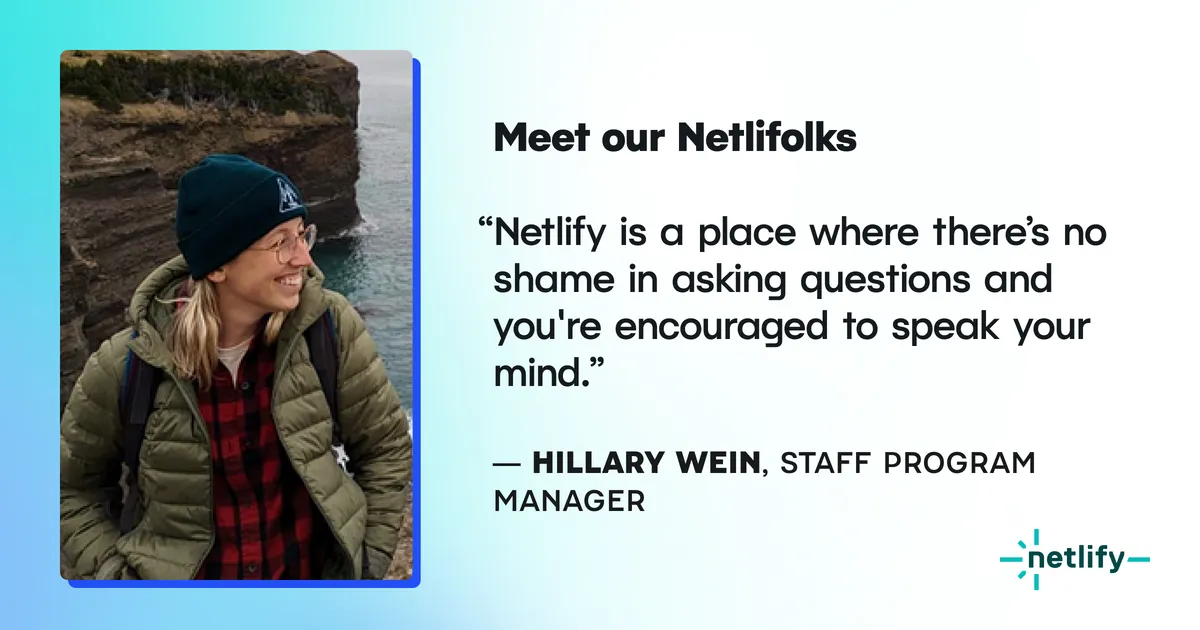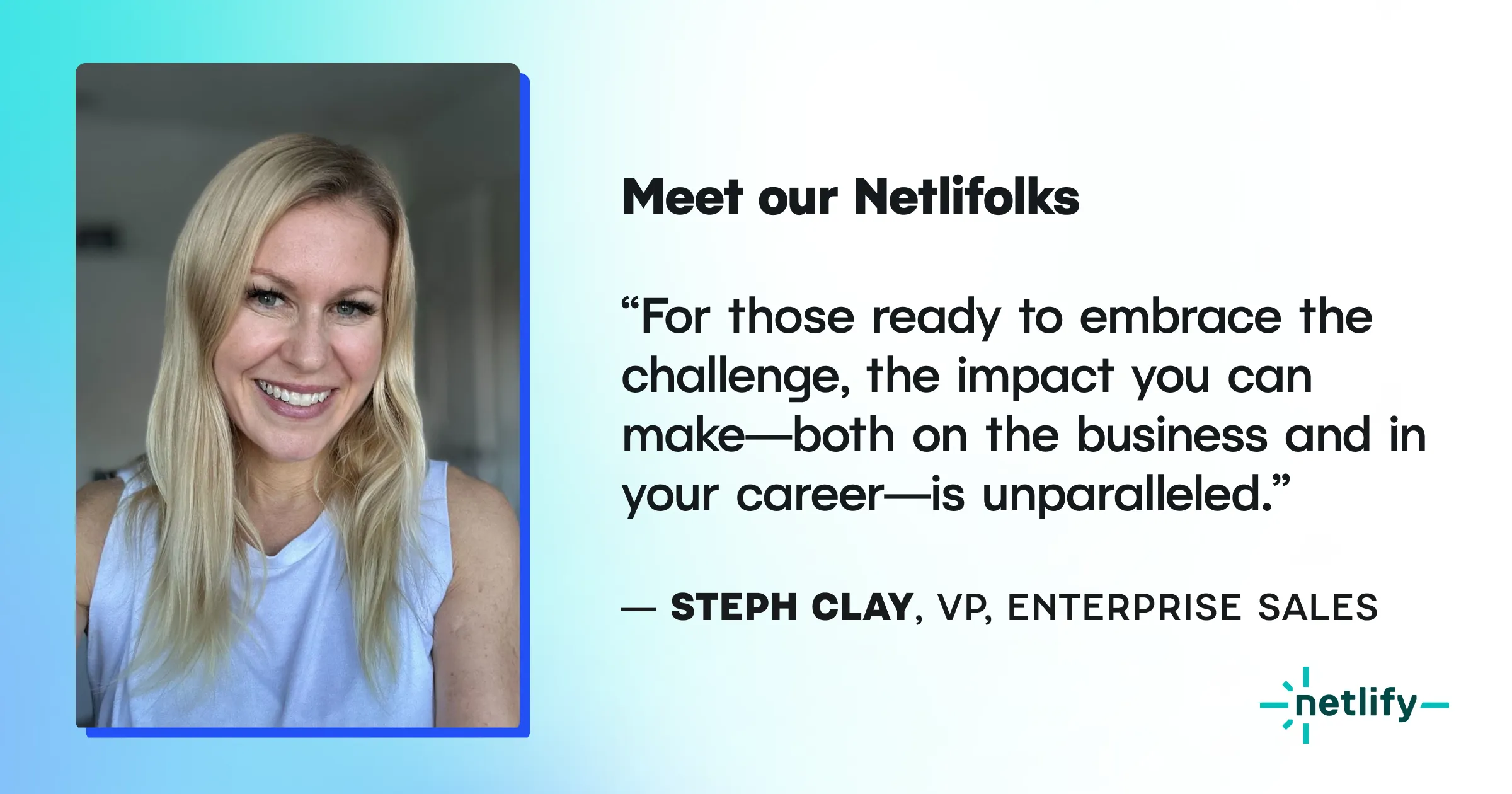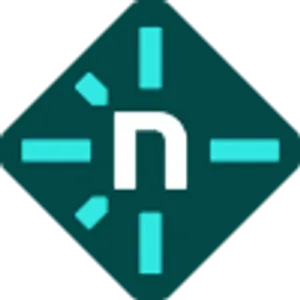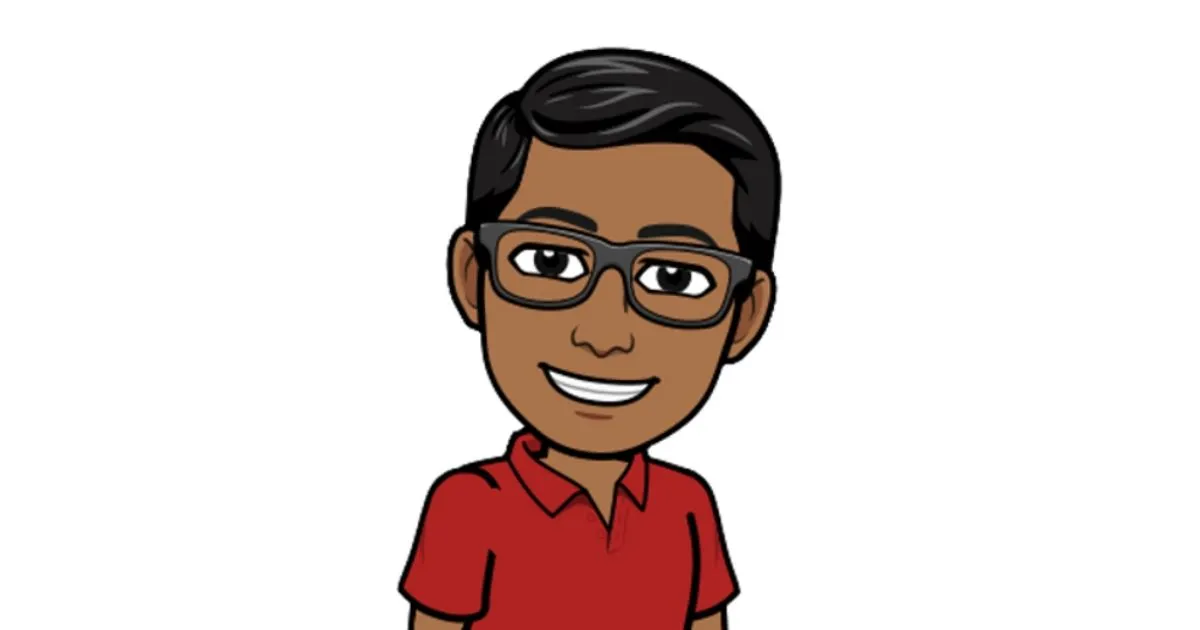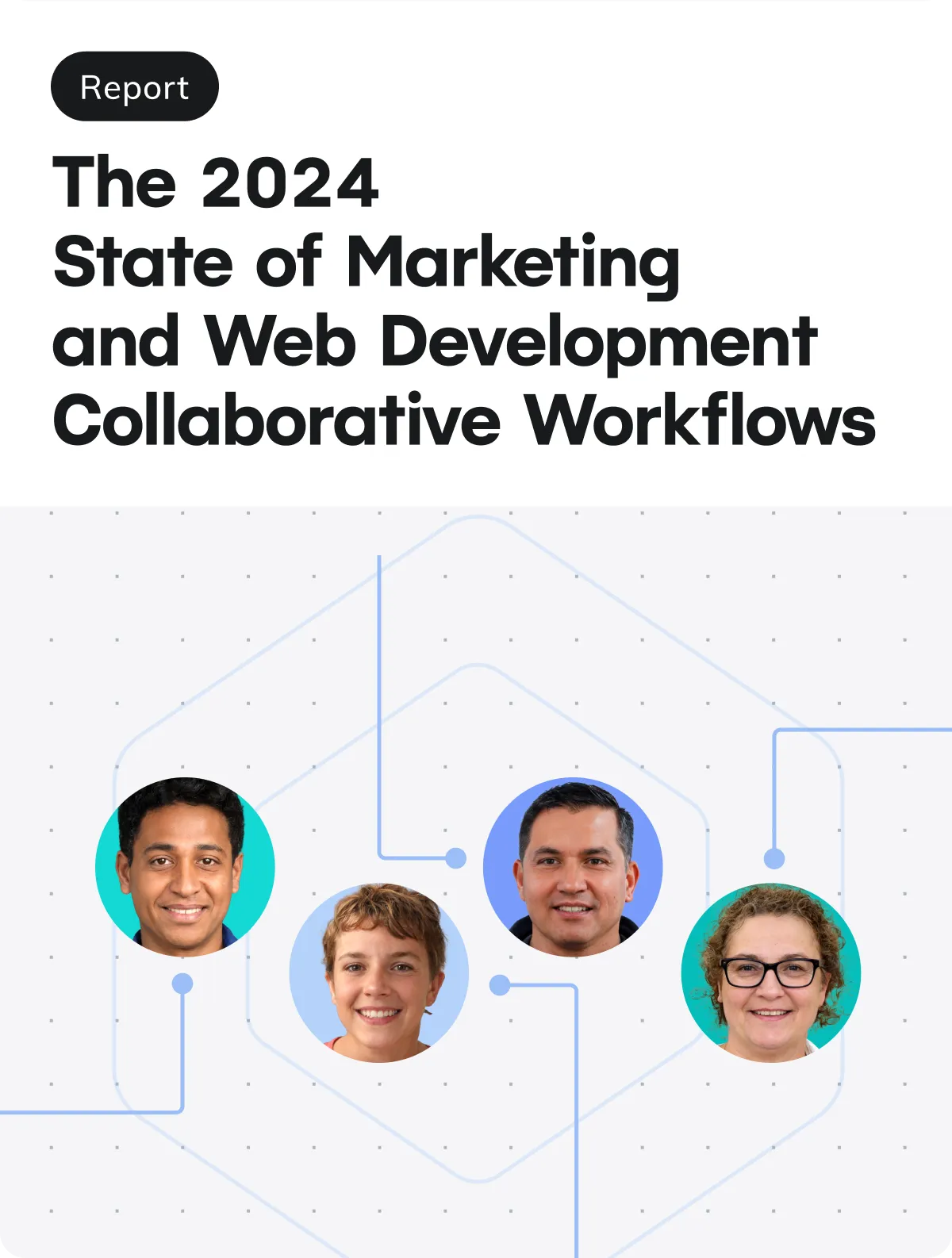What brought you to Netlify, and why did you join?
Before Netlify, I was working in Ed Tech, but my original background is in education and teaching. I spent many years teaching adult English, but after exposure to an incredible engineering team at my first start-up, I was ready to make a switch into a more technical role. I started interviewing for customer support jobs because, as a teacher, I thought about how I could transition into a role where I could really be a student of the product, identify what I needed to learn to be successful in tech, and ramp up in an educational way. I had a lot of experience explaining problems to people, troubleshooting, and guiding folks through completing complicated tasks or solving problems. So, I felt that customer support was the right place for me.
Ultimately, I chose Netlify because, during the interviews, I saw a set of managers and a department that were willing to take a chance on my transferable skills. I didn’t have a traditional technical background, but I did have strong abilities in explanation and communication. They said, “We’ll teach you what you need to know to be successful here,” and they really gave me the opportunity to join and thrive at Netlify. That’s why I picked Netlify: it was the people and the chance to have what I saw as a year of being a professional student, where I could learn everything I could about the product and help others onboard and use it effectively.
What were some of the early challenges and learning experiences you had here, and how did that shape your growth?
I had to put myself in the mindset of saying, “Okay, I’m entering a new career where I know so little about what goes on in this world.” Before, I was living in a classroom. Now, I was stepping into software development, information architecture, and the world of hosting websites online and deploying them seamlessly.
One of the first and most fundamental challenges I faced was learning all the new terminology. I made a glossary for all the new words I encountered every day and started building my knowledge from the ground up. What really helped me overcome that learning curve was Netlify’s culture. It’s a place where there’s no shame in asking questions and you’re encouraged to speak your mind. I used to tell my students, “If you have a question, someone else probably has it too.” So, I’d ask publicly, get my answer publicly, and document it for the future. I never felt like I had to hide that I was new or unsure about how to use Netlify functions or, at one point, even what a function was. The team was so encouraging and really embraced that openness!
On the flip side, asking all those questions and learning the product from a user’s perspective made me a strong support advocate. I’d gone through debugging and solving problems myself, so when users faced similar issues, I could say, “Oh, I totally understand why this is happening, because it happened to me yesterday, and here’s what I did to solve it.”
And again, I feel like I’m singing praises, but I had managers who really encouraged me to learn and troubleshoot. My manager that year not only talked to me about professional and career growth during our weekly one-on-ones, but also dedicated QA Session 30 minutes a week. During that time, I’d ask them technical questions like, “Hey, I was building this website and encountered this error. I couldn’t find anything on the forums - what would you do?” And we’d walk through it together. My manager was not just a manager but also a learning partner and advocate. They’d guide me, saying, “If you’re building a website, here’s what you need to know, and here’s how to approach getting it back online.” The whole first year was great! I felt supported and empowered to ask questions, which was key to my growth.
Tell us about your journey since that first year, and the different transitions you’ve made.
I’ve been here for over four and a half years now! During this time, like at any good startup, I’ve been on more than four teams and many different titles. I started as a support moderator, then was promoted to a more senior member of the support team before transitioning into technical project management. One of the things I really appreciate about Netlify is how career development is a regular part of the conversation with managers. My manager at the time would routinely ask, “Do you want to become a support engineer? Do you want to explore something more technical on a different team? What do you enjoy, and what do you not want to pursue?”
Coming from an educational background, I realized that I was drawn to identifying organizational patterns and issues that could be improved. I saw myself thriving more in project and program management roles. At the time, we didn’t have any open project management positions within product engineering at Netlify, but there was a big initiative related to pricing and packaging coming up. Support needed an advocate to streamline information and organize the workflows and impacts of that project. They said, “Why don’t you try this out? You’ll still be on the support team, but you’ll be leading this project and exercising those skills.”
Through that project, we learned a lot as an organization, and I was able to show that I could have a high impact in a role that wasn’t tied to an engineer title. After seeing the success of that initiative, Netlify started having larger conversations with me about transitioning from support to project and program management. That large program really kickstarted the shift, and now I’m a staff program manager at Netlify.
One of the things my career growth at Netlify has enabled is being in a role where I get to interact cross-functionally with the entire organization. I talk to marketing, sales, engineers, product marketers, product managers, and even our legal department—sometimes on a weekly or even daily basis. Every corner of the organization is part of my work.
As someone who is really driven by relationships, this role has been fulfilling because I get to form those connections, understand how to work well with people, and learn what they need out of product development and launches. It’s been a really fun part of my journey, and I get a lot of value out of it. I’ve learned so much about the business side of things, like how different departments operate, what their strategic goals are, how they consume information, and how they talk about product life cycles outside of R&D.
I guess I’m still a bit of a student because I’m always learning how to be a better partner and how to talk about our product in ways that make sense across the board. It keeps me engaged and makes things interesting. Of course, there are times where I still get stumped, but that’s when I just ask questions and say, “Okay, what I’m hearing is this—am I understanding that right?”
Overall, it’s been a great experience, and I’ve felt the most supported in my career growth here compared to any other role I’ve had. I see myself staying at Netlify because of the trust people have in my skills, even though I come from a non-traditional tech background. Focusing on human relationships and the partnerships I’ve built makes it feel sustainable to stay.
How have the ways of working evolved as you’ve moved between teams?
There’s still a really strong culture of collaboration and asking questions at Netlify. In my current role as a Staff Program Manager, I have significantly more technical exposure and experience. I’m not writing code on a daily basis. I’ve kept that practice going into a space and saying, “All right, I’m subject-matter-expert adjacent. I can create a plan, call out obstacles, get people to work together, and serve as a partner for the technical execution.”
I’ve held onto that support mindset of leading by asking questions and going through a discoverability phase—figuring out what’s happening and where I can gather more information. My current role really supports that approach, and the team benefits from stepping back and getting on the same page. We’ll ask, “Okay, what’s the problem? Are there patterns in what we are seeing? How are we thinking about addressing it?”
How have your views evolved, and what have you learned about yourself throughout your journey at Netlify so far?
One thing I brought from being in the classroom is not being afraid to speak in front of large groups, assign action items, or follow up with people. In the classroom, if it’s an action item here, it’s homework there—essentially, it’s the same thing. At the end of the day, we’re all responsible for doing our part to move forward, and I feel like my current role really lets me showcase those skills.
On a higher level, I’ve realized that I made this career change after spending years in the classroom, with established roles and titles that were far from tech, but skills that are quite similar. I’ve learned that it’s never really too late to get on a different path and find a place where you can use your skills and what brings you joy—in a unique, different, or even digital way that isn’t tied to a traditional classroom setting.
Do you have any advice for anyone looking to grow their careers?
I would say I’m really glad I wasn’t afraid to tell my managers both what I wanted to pursue and what I didn’t want to pursue. A healthy assessment of where you want to go in your career is not only about figuring out what title you want, but also about identifying what you don’t want to do.
When I was on the support team, I was able to say, “Okay, I don’t really want to be an engineer, but I love working with engineers.” I found a role where I get to collaborate on amazing technical execution without being the one writing the lines of code, and I couldn’t feel more fulfilled. I get to help people do their best work. Another thing that’s helped me is keeping in touch with mentors from different companies. I’ve been able to say, “This is what I’m pursuing in my current role - when you worked with me five years ago, what areas of growth did you identify, or what would you suggest I highlight now?” Those conversations were incredibly helpful!
